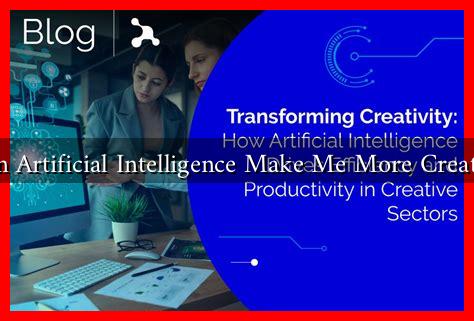-
Table of Contents
Can Artificial Intelligence Make Me More Creative?
In an age where technology is rapidly evolving, the intersection of artificial intelligence (AI) and creativity is becoming a hot topic. Many people wonder if AI can enhance their creative abilities or if it merely serves as a tool for automation. This article explores how AI can indeed foster creativity, providing insights, examples, and case studies to illustrate its potential.
The Nature of Creativity
Before delving into how AI can enhance creativity, it’s essential to understand what creativity entails. Creativity is often defined as the ability to generate new ideas, solutions, or artistic expressions. It involves divergent thinking, which is the capacity to think in varied directions and make connections between seemingly unrelated concepts.
How AI Can Enhance Creativity
AI can enhance creativity in several ways, acting as a collaborator, a source of inspiration, and a tool for experimentation. Here are some key areas where AI is making a significant impact:
- Idea Generation: AI algorithms can analyze vast amounts of data to identify trends and generate new ideas. For instance, tools like Canva use AI to suggest design elements based on user preferences.
- Content Creation: AI can assist in writing, music composition, and visual arts. Programs like ChatGPT can generate text based on prompts, helping writers overcome blocks.
- Personalization: AI can tailor experiences to individual preferences, allowing creators to focus on what resonates with their audience. For example, Spotify uses AI to curate personalized playlists, enhancing user engagement.
- Collaboration: AI can serve as a creative partner, providing feedback and suggestions. Tools like Adobe Sensei analyze user inputs to enhance creative workflows.
Case Studies: AI in Action
Several notable examples illustrate how AI is being used to enhance creativity across various fields:
- Music: The AI-generated album “I AM AI” by the artist Taryn Southern showcases how AI can compose music. Southern collaborated with AI algorithms to create melodies and lyrics, demonstrating a new frontier in music production.
- Visual Arts: The artwork “Edmond de Belamy,” created by the Paris-based art collective Obvious using a Generative Adversarial Network (GAN), sold for $432,500 at auction. This piece sparked discussions about the role of AI in the art world.
- Writing: The novel “1 the Road,” co-written by AI and author Ross Goodwin, explores the potential of AI in storytelling. The book was generated using a neural network that processed data from various sources, showcasing AI’s ability to contribute to narrative creation.
Statistics on AI and Creativity
Research indicates that AI is increasingly being embraced in creative industries:
- A survey by PwC found that 72% of business leaders believe AI will be a key driver of innovation in their organizations.
- According to a report by Forbes, 61% of marketers are already using AI to enhance their creative processes.
Challenges and Considerations
While AI offers exciting possibilities for enhancing creativity, it also presents challenges:
- Originality: There are concerns about the originality of AI-generated content. Can a machine truly create something new, or is it merely remixing existing ideas?
- Dependence: Relying too heavily on AI tools may stifle human creativity, leading to a lack of original thought.
- Ethics: The use of AI in creative fields raises ethical questions about authorship and ownership of AI-generated works.
Conclusion
In conclusion, artificial intelligence has the potential to significantly enhance creativity by serving as a collaborator, source of inspiration, and tool for experimentation. While it presents challenges regarding originality and ethical considerations, the benefits of AI in creative processes are undeniable. As we continue to explore this intersection, it is crucial for creators to embrace AI as a partner rather than a replacement, allowing for a richer and more innovative creative landscape.
Ultimately, the question is not whether AI can make you more creative, but how you can leverage AI to unlock your creative potential.

